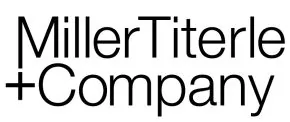Introduction
This Practice Guide discusses the significance of representations and warranties in M+A transactions. Representations and warranties are a very significant potential source of liability for Vendors which can effectively reduce the purchase price ultimately received. Parties to an M+A transaction, particularly target companies and their shareholders, need to fully understand what representations and warranties are, what representation and warranties are being requested, whether those representations and warranties are true and correct and can be given, either on an unqualified basis, or only with appropriate qualifications, and be prepared to fight for appropriate qualifications.
What is a Representation and Warranty?
In an M+A context, the term “representations and warranties” refers to factual statements included in a merger or acquisition agreement pursuant to which one party asserts the truth or accuracy of certain factual matters. For example, most typically, Vendors under an acquisition transaction provide representations and warranties regarding (i) the status and financial condition of the target company, and, (ii) in a share purchase transaction, their ownership of the target company shares, and, (iii) in an asset purchase transaction, ownership of the assets being sold.
Essentially, a representation and warranty is a statement of factual matters whereby a party “represents” and states to the other party that a given state of facts is true and correct as of a given time. Legally, there are technical distinctions between a “representation” (a statement of fact as at a given time) and a ‘warranty” (a promise by a party giving a statement of fact that the statement is true), but in an M+A context the distinction is blurred, and both terms are usually used. If the statement is not true, the party making the representation and warranty may be liable to pay damages to the other party that relied on the statement, to compensate the other party for losses incurred as a result of the false statement.
What is the Purpose of Representations and Warranties?
Acquirors typically seek representations and warranties to support their due diligence, and obtain comfort, for example, regarding the absence of negative circumstances (e.g. the target company having no liabilities which are not disclosed in the target company’s financial statements). Vendors are required to make various representations and warranties that must be true and correct as at the date the Acquisition Agreement is signed, and then typically will have to “bring forward” those representations and warranties, and confirm they are true and correct at the time of Closing. The Acquiror generally will have a condition precedent to its obligations to purchase that include the Vendor’s representations and warranties being correct, such that the Acquiror can elect not to complete the purchase if that is not the case.
In addition, if a transaction is completed, the Acquiror can generally potentially sue Vendors for breach of representations and warranties, if it can be demonstrated that they were not true or correct as at the time given, or at Closing. In those circumstances, an Acquiror could seek to recover damages for breach of contract, whether or not the Acquisition Agreement includes indemnification provisions (subject to any specified survival period or provisions set out in the Agreement specifying how long the representations and warranties survive after Closing, and limitation periods in applicable statutes which prescribe statutory limitation periods for bringing legal actions). If the Acquisition Agreement includes indemnification provisions (usually the case), most typically claims for breach of a representation and warranty are one of the primary matters covered by the indemnification provisions, and claims regarding any such breach are made pursuant to such provisions.
Covenants Disguised as Representations and Warranties
A representation and warranty should be a statement of fact, and should generally refer to present or historical factual matters (such as accuracy of prior financial statements as at their date). It is sometimes suggested that representations and warranties include matters extending beyond current or historical facts, and effectively reflect a covenant to achieve facts intended to exist in the future (for example, prior to the Closing, the Target Company will have obtained a specified regulatory permit that it does not currently hold.) In general, representations and warranties should be restricted to statements of existing facts. It generally is preferable and more certain to avoid “disguised” covenants that effectively attempt to bind a party by representation and warranty to what is really a contractual covenant regarding conduct between signing and Closing, and expressly state promises regarding future facts as a covenant. Further, there are concerns that a court may refuse to give legal effect to a representation as to future events, on the basis that such statement reflects only an opinion or statement of future intention. (Note that this is different from giving representations and warranties that are true and correct at the time they are given (e.g. when an Acquisition Agreement is signed) and which will continue to be true at the time of Closing.)
However, in limited cases, for practical purposes, it may be efficient to include as part of the representations and warranties a statement of fact that is intended to exist in the future (e.g. a representation and warranty that, at the time of Closing, the target company will be in good standing, if it is in the process of curing a failure to be in good standing)., rather than separately giving a covenant to achieve that state of facts.
Representations Given as at a Specific Date
In some cases, certain representations and warranties may only be true as of a specified date, and the matter represented upon may change after that date and before Closing. For example, a company with outstanding stock options that might be exercised by holders prior to Closing could provide a representation and warranty that, as at the date of the Acquisition Agreement, it has a specified number of shares issued and outstanding, but the number of shares outstanding may change between signing and Closing. In that situation, the representation and warranty should include language that expressly states that it is given as at the date of the Agreement. In that case, the condition precedent to Closing would not require that the specified facts continue to be the same as at Closing, but rather that the representation and warranty given in relation to the state of facts as at a specified time was correct as at such time.
Joint and Several Liability versus Several Liability
In a Share Purchase Agreement, shareholders of the target company typically must provide representations and warranties regarding their title and ownership of shares, in addition to representations and warranties regarding the target company and its financial condition. In some cases, Purchasers seek to have all target company shareholders “jointly and severally” give that representation regarding every other shareholder’s ownership. Vendors and their counsel may resist that, and seek to only have each shareholder severally but not jointly provide that representation. In many cases shareholders, particularly in a closely held target company, may have to jointly and severally represent and warrant the various matters relating to the target company, with the effect that each of the shareholders may be responsible if the representation is not correct, and liability will not be limited to their proportionate interest.
Acquiror Representations and Warranties
In most cases, Acquiror representations and warranties are much more limited than those of the Vendors. However, where the Acquisition consideration includes securities of the Acquiror, additional representations and warranties of the Acquiror are usually provided. In a “merger of equals” transaction, the representations and warranties are often closer to mutual.
Qualifications to Representations and Warranties
The matters covered by representations and warranties, and the qualifications thereto (for example, the extent to which any representations and warranties may be limited by a “knowledge” qualification), are typically the subject of negotiation between the parties. In addition, some specific representations and warranties (e.g. regarding environmental matters, or ownership and use of intellectual property) can be the subject of considerable negotiation.
Representations and warranties can be absolute, or unqualified, or qualified. A qualified representation and warranty includes wording which moderates or qualifies the statement of fact. Often Vendors cannot give every proposed representation and warranty on an unqualified basis, and have to provide qualifications, or exceptions to some of them. For example, Vendors may not be able to provide an unqualified representation regarding the target company not being subject to any lawsuits, and may need to qualify the representation to refer to existing (or prior) lawsuits. In that case, the qualification could potentially be included in the text of the specific representation and warranty, which is done in some cases. In other cases, the Acquisition Agreement includes one or more disclosure schedules that are attached to the Agreement which set out disclosure qualifying specific representations and warranties. In other cases such disclosure is provided in a separate disclosure letter that is delivered to the Acquiror at the same time as the Acquisition Agreement is signed.
As a result, there will often be included as part of, or supplemented to, an Acquisition Agreement, qualifying language which sets out qualifications or exclusions to certain representations and warranties specifying circumstances or details regarding how specific representations and warranties are untrue (but which representations and warranties, as qualified by the qualification, are true). The qualifications are also subject to review and approval by the Acquiror and its legal counsel and also may be the subject of negotiation (e.g. Vendors’ legal counsel may propose very broad, generic qualifications, and the Acquiror’s legal counsel may seek to narrow and limit qualifications to what is specifically necessary).
Arguments for and Against Qualifications
The extent that representations and warranties are subject to materiality qualifications can be the subject of negotiation, and Vendors often seek to include such qualifications in certain representations and warranties (in some cases because they may be actually aware that the unqualified representation and warranty is incorrect but only in some immaterial respects, but it is less practical to expressly specify how that is the case, and simpler to include a materiality qualification). In other cases, a Vendor may not be actually aware that a specific representation and warranty needs to be qualified, but does not feel comfortable taking the risk that this is the case, but more comfortable giving the representation and warranty qualified by a materiality qualification, or a knowledge qualification. In such cases, Acquirors may assert that, as between them and the Vendors (who are more familiar with the circumstances), the Vendors should assume the risk, and give an unqualified representation and warranty such that the risk of unknown facts falls on the Vendors, rather than that being assumed or shared by the Acquiror. Hence, negotiation over certain representations and warranties, and whether they should be qualified, may become less a discussion over whether the representation is true, but rather who should bear the risk if it may not be.
In some cases Vendors concede to the argument noted above that, in relation to some matters, the Vendors should potentially be in better position to know whether the representation and warranty is true, and assume the risk that it is not true (on the basis that, in effect, they are already subject to that risk, e.g. if the business is not sold).
In other cases, Vendors are unwilling to take the risk of a possible significant effective reduction in the purchase price if it may turn out that, as a result of events outside of their knowledge, there is a decrease in the value of the target company (for example, a an unqualified representation and warranty that intellectual property used by the target company does not infringe the rights of others, with exposure to a claim for breach or indemnification if, post Closing a ‘patent troll’, or other unforeseen infringement, claim is made against the target company. In those circumstances, the Vendors and their legal counsel may argue that an Acquiror (e.g., a “strategic acquiror” in the same industry) should have the same or possibly better ability to assess the risks of such circumstances unforeseen by either party.) Vendors may further argue that the purchase price was negotiated on the basis of a standard package of representations and warranties and not on the basis of unqualified representations that the Vendors are unable or unwilling to give, particularly where it may be extremely difficult or impossible to adequately evaluate and quantify potential exposure from an unqualified representation and warranty that the Vendors do not feel comfortable giving.
Even if the target company may potentially be subject to existing potential unknown, or unforeseen, liabilities, its shareholders only potentially become so as a result of representations and warranties and indemnification obligations. In that regard, Vendors should not be required to provide an unqualified representation and warranty that the target company or its business is ‘better’ than it may in fact be, and effectively be an “insurer” of that status. Instead, it can be argued that the Acquiror should be willing to acquire the business subject to certain risks not within the knowledge of either party, but which are reflected in the negotiated purchase price.
Beware Materiality Scrape Provisions
Another matter increasingly becoming the subject of negotiation is whether materiality qualifications included in representations and warranties might be subject to a “materiality scrape” clause ‘buried’ in indemnification provisions. Such a provision can effectively deprive materiality qualifications, otherwise possibly the subject of tough negotiation, from having any meaning. See the “Seller Beware – Why Sellers in a Private M+A Transaction Should Consider Resisting a “Materiality Scrape” Clause” Practice Guide.
Changes in Circumstances Between Signing and Closing
Where an Acquisition Agreement is signed with Closing to occur at a later date (as opposed to a “sign and close” situation), Vendors may be subject to risks that, in addition to the Acquiror being permitted to elect not to close in reliance on a condition precedent, but also that the Acquiror may be able to sue for breach of contract if (as is typical), the Agreement includes a covenant requiring the Vendors to deliver a “bring forward certificate” certifying the representations and warranties are true at Closing. While such risks are often borne by the Vendors, similar to the situation discussed above regarding facts that might be unknown at the time of signing, it can be a negotiated point regarding whether Vendors should bear the risk that post-signing events may change the facts represented upon by the Vendor at the time of signing.
In a situation which is not a “sign and close”, the Acquisition Agreement may provide the Vendors with the right to supplement disclosure to reflect events that occur between signing and Closing, and so avoid potential claims for breach of representation and warranty (but the Acquiror would have the right to rely on conditions precedent and not Close). However, this is not common.
Survival of Representations and Warranties
Typically (but not always), in private M+A transactions, representations and warranties are intended by the parties to provide a basis for post Closing liability against the party that provided those representations and warranties. In that case, the Acquisition Agreement will typically expressly state that the representation and warranties survive Closing. In addition, the Agreement will often (but not always) specify as part of the indemnification provisions that the representation and warranties (subject to carve outs for certain specified or “Fundamental” representations) only survive for an agreed upon specified survival period.
In “going private” acquisition transactions involving a public target company, the representations and warranties are usually given only by the target company, and are expressed not to survive Closing. As such, the representations and warranties are useful for purposes of conditions precedent rather than serving as a basis for claims for damages if Closing does occur.
No Misrepresentation Representation
Specific representations and warranties often requested, and issues frequently negotiated in relation thereto, are too numerous to discuss here. This may be the subject of a future Practice Guide.
In some cases Purchasers and their legal counsel include a representation and warranty that all information and documents provided to the Purchaser do not contain any misrepresentation. This is generally resisted by Vendors and their counsel. In most cases Vendors are unable to give such a representation, and requiring it would place an unrealistic demand on the Vendors and likely slow down or restrain the due diligence process (instead, Purchasers should include specific representations and warranties regarding factual matters or information that is important to them). As possible alternative suggested in the annotated version of the American Bar Association Model Asset Purchase Agreements, might be a representation and warranty from the Vendor that they are not aware of any material inaccuracies or omissions in specifically identified documents that have been provided to the Purchaser.
Conclusion
Representations and warranties are an important feature of any Acquisition Agreement. While the detailed wording of the representations and warranties are typically negotiated between the legal counsel for the respective parties, the parties (particularly Vendors) must understand what representations and warranties are being requested and attempt to ensure that all of the representations and warranties are true and correct and can in fact be given. Where the process of negotiation and finalization of an Acquisition Agreement can take an extended period of time, and Closing may be delayed for an extended period after an agreement is entered into, Vendors in particular must carefully read and review representations and warranties both prior to entering into an agreement, and again, prior to Closing, and understand the risks of representations and warranties being untrue, and issues that can arise in the negotiation of such representations and warranties.







